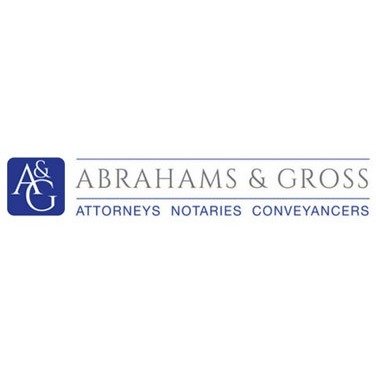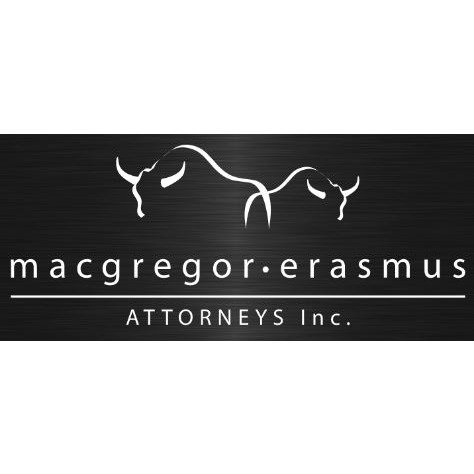Best Sanctions & Export Controls Lawyers in Cape Town
Share your needs with us, get contacted by law firms.
Free. Takes 2 min.
List of the best lawyers in Cape Town, South Africa
About Sanctions & Export Controls Law in Cape Town, South Africa
Sanctions and export controls law refers to the set of rules and regulations that govern the movement of goods, technology, and services across South African borders, as well as the legal restrictions imposed on transactions with certain countries, entities, or individuals. In Cape Town, as part of South Africa, these laws originate from both local legislation and international obligations to which South Africa is a signatory. The fundamental purpose of these laws is to protect national security, uphold international commitments, and prevent illegal activities, such as the proliferation of weapons or support for terrorism.
Why You May Need a Lawyer
There are various situations where individuals or companies may require legal assistance with sanctions and export controls in Cape Town. Common scenarios include:
- Uncertainty about whether your goods or services fall under national or international export control regulations
- Receiving requests from foreign buyers in sanctioned or high-risk countries
- Allegations or investigations regarding breaches of export controls or sanctions
- Complexities in applying for licenses or permits to export controlled items
- Advising on compliance programs to avoid unintentional violations
- Interpretation of dual-use item regulations
- Disputes related to denied transactions or asset freezes
- Understanding changes in sanctions lists or regulatory updates
- Responding to inquiries from the South African Reserve Bank or law enforcement
- Assessing risks when dealing with new foreign business partners
A lawyer with expertise in this area can help clarify your obligations, reduce the risk of costly fines or penalties, and facilitate lawful international trade.
Local Laws Overview
South African sanctions and export controls are mainly governed by several key pieces of legislation and government guidelines. In Cape Town, enforcement falls under national authorities, but local legal professionals are well-versed in ensuring compliance within the regional context.
- The Regulation of Foreign Military Assistance Act and National Conventional Arms Control Act regulate trade in military and defense-related items.
- The Non-Proliferation of Weapons of Mass Destruction Act oversees the control of dual-use goods and technology, particularly those that can be used for both civilian and military purposes.
- The South African Reserve Bank administers financial sanctions and certain exchange control regulations that can impact cross-border transactions.
- South Africa implements United Nations Security Council resolutions that restrict specific trade or interactions with targeted individuals, companies, or countries.
- Businesses involved in exports must conduct due diligence and may need to secure export permits from agencies such as the Department of Trade, Industry and Competition (DTIC) and the Non-Proliferation Council.
Local legal advice helps ensure that you navigate these laws correctly, prepare proper documentation, and avoid unintentional breaches.
Frequently Asked Questions
What are export controls?
Export controls are laws and regulations that restrict or monitor the export of certain goods, technologies, and services for reasons such as national security or compliance with international agreements.
Who enforces sanctions and export controls in Cape Town?
Enforcement is managed nationally by bodies such as the South African Revenue Service, the Department of Trade, Industry and Competition, the South African Reserve Bank, and, for sensitive items, the Non-Proliferation Council.
What are UN sanctions, and how do they apply locally?
United Nations sanctions are binding on South Africa and are incorporated into national law, meaning that residents and businesses in Cape Town must comply with all related restrictions.
What types of goods are usually controlled?
Controlled goods include military items, dual-use products (that have both civilian and military applications), chemicals, and technologies that could be used to produce weapons of mass destruction.
How can I find out if a product requires an export permit?
You can check the lists and guidelines published by the Department of Trade, Industry and Competition, or consult a lawyer to review relevant schedules and regulations for your product or service.
What are the potential penalties for violating sanctions or export controls?
Penalties can range from administrative fines to criminal charges, imprisonment, or being banned from exporting or doing business internationally. Severe violations may prompt both local and international action.
Can I trade with companies or individuals in countries under sanctions?
In general, direct or indirect trade with sanctioned parties is prohibited unless you obtain a specific exemption or license from the relevant government authority.
Do export control regulations apply to services and technology, or only physical goods?
Export controls apply to goods, services, and intangible transfers such as technology or know-how, especially when transmitted electronically or through communication.
How often do sanctions and export control rules change?
Rules are updated regularly to reflect changes in international policy or national priorities. It is important to stay informed and review the most recent legislation or get legal advice.
What steps should my business take to comply with these laws?
Establish a compliance program, conduct due diligence on customers and transactions, keep up to date with regulations, and consult with legal experts regarding risk areas and best practices.
Additional Resources
For further information or support, you may contact the following entities:
- South African Revenue Service (SARS) Customs
- Department of Trade, Industry and Competition (DTIC)
- National Conventional Arms Control Committee (NCACC)
- Non-Proliferation Council
- South African Reserve Bank (Exchange Control Department)
- South African Police Service Commercial Crime Unit (for enforcement matters)
- Western Cape Government: Economic Development and Tourism (for local business support)
Additionally, industry associations, export councils, and chambers of commerce in Cape Town can provide sector-specific advice or guidance.
Next Steps
If you require legal assistance with sanctions and export controls in Cape Town, begin by gathering relevant information about your business activities, products, customers, and intended transactions. Consult with a South African lawyer who specializes in international trade compliance and export controls. A qualified attorney can assess your unique circumstances, ensure you interpret the laws correctly, assist with license applications, and help you develop robust compliance measures to manage risks. Taking proactive legal advice is the best way to avoid costly legal issues and facilitate smooth international operations.
Lawzana helps you find the best lawyers and law firms in Cape Town through a curated and pre-screened list of qualified legal professionals. Our platform offers rankings and detailed profiles of attorneys and law firms, allowing you to compare based on practice areas, including Sanctions & Export Controls, experience, and client feedback.
Each profile includes a description of the firm's areas of practice, client reviews, team members and partners, year of establishment, spoken languages, office locations, contact information, social media presence, and any published articles or resources. Most firms on our platform speak English and are experienced in both local and international legal matters.
Get a quote from top-rated law firms in Cape Town, South Africa — quickly, securely, and without unnecessary hassle.
Disclaimer:
The information provided on this page is for general informational purposes only and does not constitute legal advice. While we strive to ensure the accuracy and relevance of the content, legal information may change over time, and interpretations of the law can vary. You should always consult with a qualified legal professional for advice specific to your situation.
We disclaim all liability for actions taken or not taken based on the content of this page. If you believe any information is incorrect or outdated, please contact us, and we will review and update it where appropriate.
















